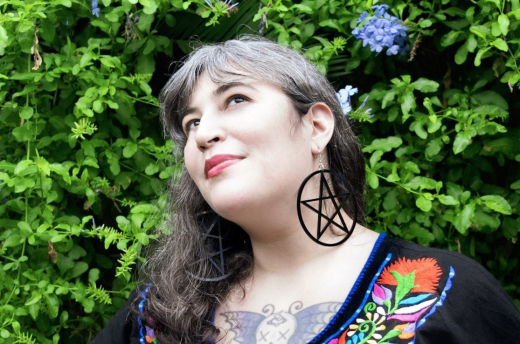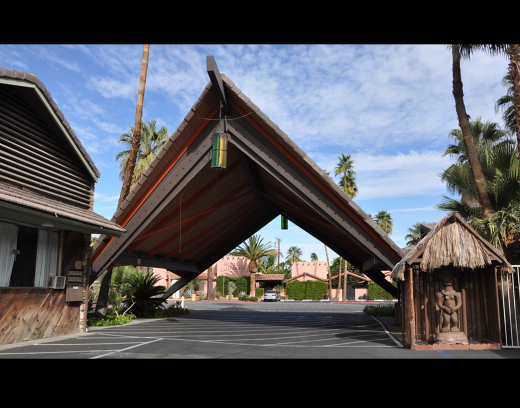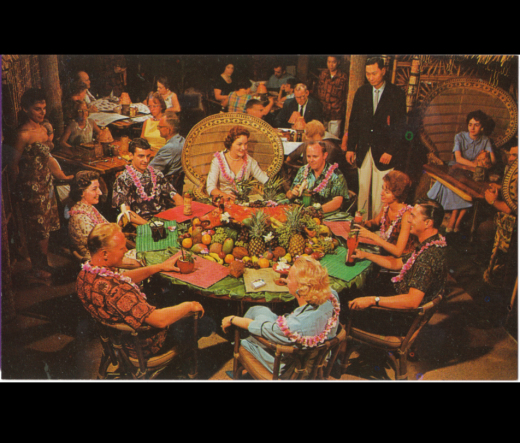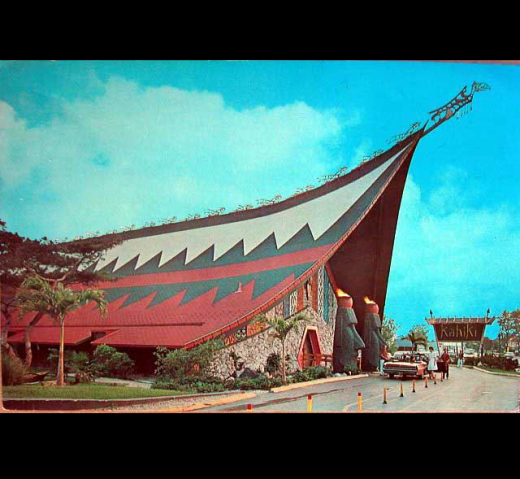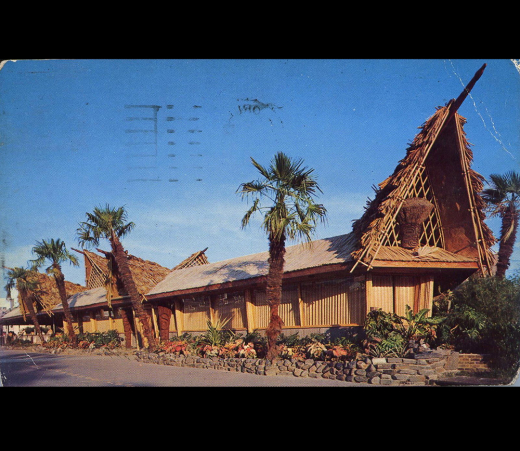As part of the Docomomo US 2021 Annual Theme, “Travel and Leisure,” our next Mission for Modernism lecture will examine issues of cultural appropriation as they relate to the rise of tiki bars and tiki “culture” in the midcentury and its recent resurgence.
As this New York Times article by Sammi Katz explains:
“Tiki was invented by a few white guys [Victor “Trader Vic” Jules Bergeron, Jr and Ernest Raymond Beaumont Gantt, aka Donn Beach or Don the Beachcomber] in the 1930s. They took Rum from the Caribbean, food from Asia, and iconography from the Pacifica Islands, put ‘em all in a shaker, strained the results, and called it tiki. It was created for Americans [specifically white Americans] to “escape” to a faux tropical paradise where they could forget their trouble during the Great Depression.”
Tiki bars slowly gained in popularity, but really took off after World War II. It was common for establishments to use religious figures, symbols and motifs from various Pasifika cultures in irreverent ways such as décor, drink names and vessels. The tiki aesthetic was also expressed through architecture, and the trend became popular with motels and other commercial roadside businesses as well. Inspiration was taken from indigenous vernacular building styles across the Pacific, but the distinct forms were blended together and exaggerated to create something wholly different. Perhaps one of the most troubling aspects within the tiki genre is the over-sexualization of native Hawaiian and Pacific Islander women. One of the primary examples of this is the adulteration of the traditional Hula.
Although tiki bars began to decline in the late '70s and '80s, they saw a resurgence in the 2000’s. Because this phenomenon is so closely associated with a certain type of midcentury modern kitsch, it is important and relevant for Docomomo US to address this problematic aspect of midcentury culture that has carried through to the present day.
Kālewa Correa, Curator of Hawaiʻi and the Pacific at the Smithsonian Asian Pacific American Center, will speak on the history of tiki bars and cultural appropriation.
Kauahi Ching, architectural designer at Hawaii-based firm G70, will discuss some relevant projects how she has addressed these issues in her own work.
Chockie Tom, award-winning bartender, brand ambassador, and co-founder of Doom Tiki, will share her personal experience in the field and her efforts to challenge the tropes associated with classic tiki.
Details
Thursday June 24, 2021
5:00 pm - 6:30 pm Eastern Time
The 45-minute presentation will be followed by a moderated Q&A session
Free for Docomomo US members.
Recommended $15 donation for non-members.
If you are already a member, thank you. If not, we encourage you to become a member today to support this programming.
Advance registration required



